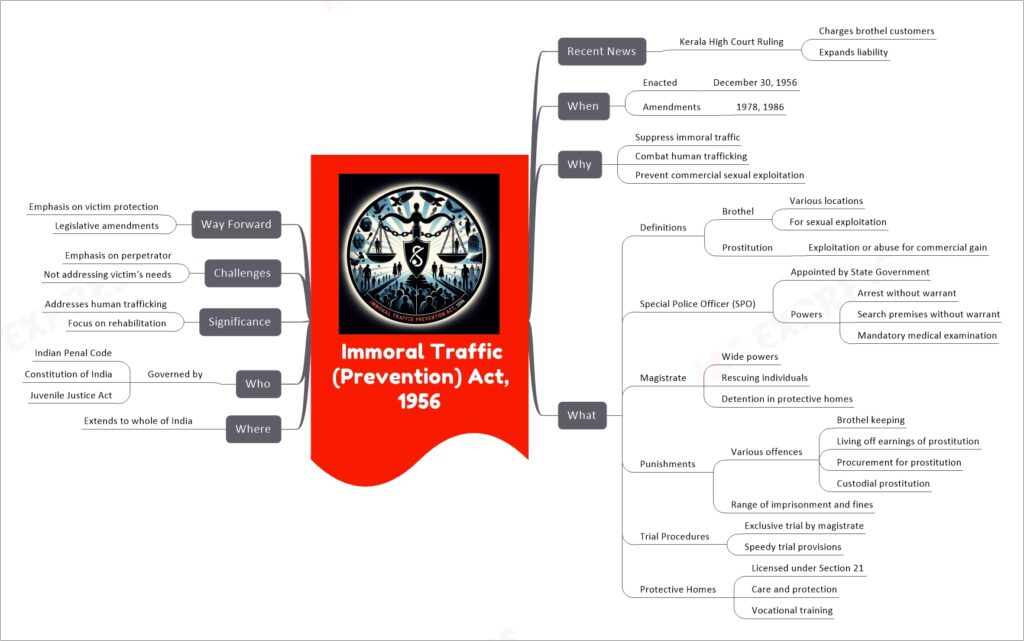Immoral Traffic (Prevention) Act, 1956

The Immoral Traffic (Prevention) Act of 1956, commonly known as ITPA, is an Indian legislation initially enacted to combat the trafficking of women and children for the purpose of prostitution. This act, which aligns with international conventions, doesn’t criminalize prostitution per se but targets activities like brothel keeping, pimping, and procuring individuals for prostitution. With provisions for the rescue and rehabilitation of victims, the Act empowers special police officers and magistrates to enforce its provisions. However, it has faced criticism for focusing more on the perpetrators rather than adequately addressing the needs of the victims. Recent legal interpretations, such as the Kerala High Court’s decision to charge brothel customers, demonstrate evolving judicial attitudes towards this complex issue.

